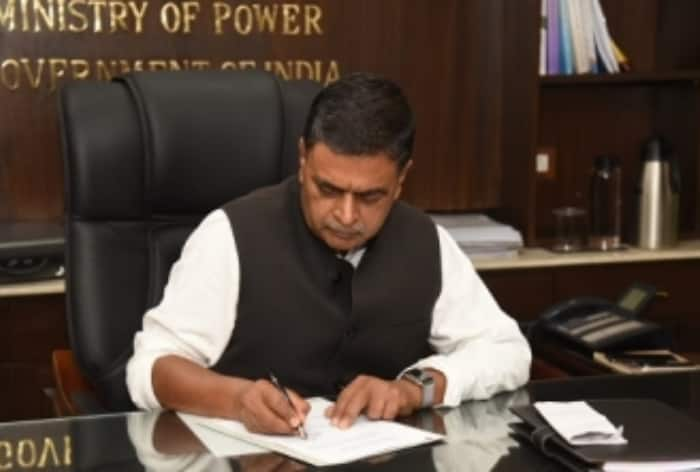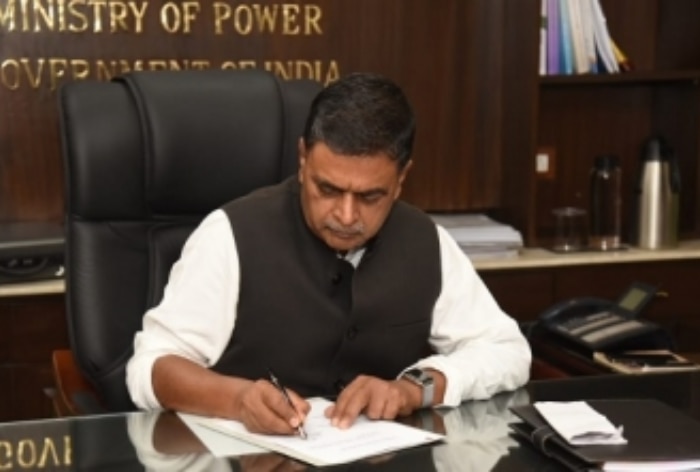The Power Ministry on Monday issued new rules to allow bulk consumers of electricity who have Energy Storage Systems (ESS) to establish, operate and maintain dedicated transmission lines themselves without the requirement of a licence.

New Delhi: The Power Ministry on Monday issued new rules to allow bulk consumers of electricity who have Energy Storage Systems (ESS) to establish, operate and maintain dedicated transmission lines themselves without the requirement of a licence.
“For ease of doing business by industries like green hydrogen manufacturers and to facilitate energy transition along with energy security by faster establishment of energy storage capacity, new rules have been prescribed,” the Power Ministry said.
By allowing such facilities, a new category of “bulk consumers” would emerge in the country, benefiting from more affordable electricity and enhanced grid reliability. This facility was already available to generating companies and captive generating stations.
The new rule prescribes that a generating company, a person setting up a captive generating plant, an Energy Storage System or a consumer comply with the regulations, technical standards, guidelines and procedures issued under the provisions of the Act.
The new rules also provide for reducing open access charges, which will benefit consumers, including Industry and form part of the reforms aimed at improving the financial health of discoms by ensuring cost-reflective tariffs through the elimination of revenue gaps. Due to the very high Open Access charges levied by some State Regulators this facility of Open Access could not be utilised by consumers to the desired level.
Open Access charges must be reasonable and uniform throughout the country to facilitate the consumers like commercial establishments and industries, getting electricity through Open Access at competitive and reasonable rates, according to the Power Ministry statement.
To rationalise the open access charges new rules have been prescribed that will reduce the costs of wheeling charges, state transmission charges and additional surcharges. Releasing the rules, Minister for Power R.K. Singh said doing away with the requirement of a license for dedicated transmission lines for industry will lead to ease of doing business, leading to faster industrial growth and more job creation.
This, along with the rationalization of open access charges, will lead to faster adoption of renewable energy by the industry, thus reducing emissions. The Minister said that this is the latest in the whole series of reforms carried out in the power sector under Prime Minister Narendra Modi’s government.
The new rule on access charges inter-alia prescribes that for a person availing of General Network Access or Open Access, the additional surcharge shall be linearly reduced and eliminated within four years from the date of grant of General Network Access or Open Access.
It is also provided that the additional surcharge shall be applicable only for the Open Access Consumers who are or have been consumers of the concerned distribution licensee. Thus, a person who has never been a consumer of the distribution licensee would not have to pay an additional surcharge.
To ensure the financial sustainability of the power sector, it is necessary that the tariff be cost-reflective and all prudent costs be allowed. However, some state regulators had created a large revenue gap, leading to financial distress for the distribution companies due to the disallowance of various costs incurred, including even power purchase costs.
To discourage such practice, there was a need to make statutory provisions to ensure that there was no such gap, the statement explained. It is also imperative that the liquidation of any such existing gaps in revenue be done in a timely manner. New rules are notified to ensure that revenue gaps are not created except in extraordinary circumstances like natural calamities and to provide for time-bound liquidation of the gaps created, if any.
The rule mandates that the tariff shall be cost reflective and there shall not be any gap between the approved Annual Revenue Requirement and the estimated annual revenue from the approved tariff except under natural calamity conditions. Such a gap, if any, shall not be more than three percent of the approved Annual Revenue Requirement.

